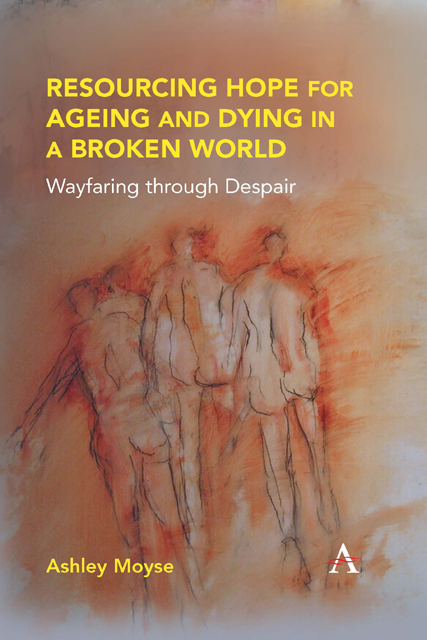Book contents
1 - Pain, Suffering and the Broken World
Published online by Cambridge University Press: 10 January 2023
Summary
People suffer pain. People suffer from broken bones and from broken hearts. People suffer from lesions and from loneliness. People suffer from pain and from the absence of pleasure. And pain is concrete. After all, pains ‘can't exist without someone feeling them’. Yet for those experiencing pain, it might also be felt even when there is no physical evidence. And not all pain causes suffering. That is to say, while it is often discussed in relation to pain, suffering does not always as neatly to correspond. Suffering, after all, ‘is not merely a matter of pain and other physical symptoms, but in addition has psychological, existential, and social dimensions’. Suffering, accordingly, tends to confound simple clarification and explanation. Moreover, while it might not originate from pain or from illness, ‘it [suffering] can make us feel ill and can even cause us to develop various ailments’. So, pain can be a cause of suffering. Yet not always. Suffering can cause further affliction too, heaping burden upon burden.
Nevertheless, people in pain, experienced physically or psychologically or inexplicably, report ‘suffering from pain when they feel out of control, when the pain is overwhelming, when the source of the pain is unknown, when the meaning of the pain is dire, or when the pain is apparently without end’. As Eric Cassell has commented further, suffering occurs when persons perceive their pain ‘as a threat to their continued existence – not merely to their lives but their integrity as persons’. Such threat can excite experiences of despair. And despair, as Gabriel Marcel proposes, entangles or entraps persons in an unpredictable dialectic that moves between desire and fear; between things not yet possessed and things possessed at risk of being lost.
Suffering, therefore, includes the subjective experience of losing or risking the loss of some perceived good. But those things not yet possessed and those things possessed at risk of being lost, those values in late modern vernacular, are shaped to some degree by ‘the character of society […] [that] determines the way [persons] experience their own physical aches and hurts as concrete pain’. Ivan Illich goes on to clarify, stating that ‘The act of suffering always has a historical dimension’.
- Type
- Chapter
- Information
- Resourcing Hope for Ageing and Dying in a Broken WorldWayfaring through Despair, pp. 19 - 38Publisher: Anthem PressPrint publication year: 2022



